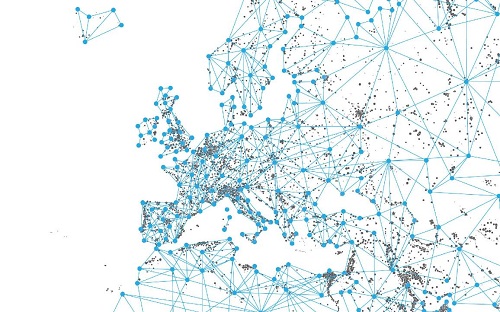
European Parliament to Vote on EaP Summit Recommendations

The EU is forging closer links with its eastern neighbours. Photo: AP Images/European Union-EP
The European Parliament is going to vote on a report on its recommendations for the European Council, the European Commission and the European External Action Service, regarding the upcoming Eastern Partnership summit in Brussels.
The recommendations, sponsored by Laima Andrikienė (EPP, LT) and Knut Fleckenstein (S&D, DE), will be debated in the European Parliament plenary on November 14, with the vote scheduled to take place on November 15.
The document was already adopted by the Foreign Affairs Committee of the European Parliament (AFET) on October 10 by 40 votes to 6, with 1 abstention.
Collective Pressure on Russia
The draft of the recommendations notes that “independence, sovereignty and territorial integrity of the EU’s eastern partners remains under threat from unresolved regional conflicts, including some that were initiated and are still actively sustained by the Russian Federation in contradiction with its international commitments to uphold the international legal order.”
The text also says that “EU should play a more active role in the peaceful resolution of all ongoing conflicts in its neighbourhood,” adding that “Russian aggression towards Ukraine, the annexation of the Crimean peninsula and the continued occupation of two Georgian regions, as well as Russian hybrid threats including destabilization activities and propaganda, threaten European security as a whole.”
The document recommends “to commit to sustaining the unity of action among EU Member States in maintaining collective pressure on Russia,” and to solving Russia’s conflicts with its neighbors, including “solving the conflict between Russia and Georgia through tangible outcomes of the Geneva International Discussions and full implementation by Russia of the 2008 ceasefire agreement.”
European Aspirations, Trust Fund, EaP+
Notably, the document asks other EU institutions “to reiterate that AAs [association agreements] with Georgia, Moldova and Ukraine do not constitute the final goal in their relations with the EU; to acknowledge once again the European aspirations of these countries; to point out that, pursuant to Article 49 of the TEU and in line with the Rome Declaration of 25 March 2017, any European state may apply to become a member of the EU, provided it adheres to the Copenhagen criteria and the principles of democracy, that it respects fundamental freedoms and human rights including those of minority groups and that it upholds the rule of law; to urge the Member States, in this regard, to agree to an ambitious declaration for the 2017 [EaP] Summit that sets relevant long-term goals.”
The text also suggests “to consider, within the EaP policy, an attractive longer-term ‘EaP+’ model for associated countries that have made substantial progress in implementing AA/DCFTA-related reforms, that could eventually lead to joining the customs union, energy union, digital union and Schengen area,” along with other closer integration measures.
Another recommendation is to ask the European Commission, along with the European Investment Bank and other multilateral financial institutions “to work towards the successful implementation of the Investment Plan for Europe,” and “to request the establishment of a trust fund for Ukraine, Georgia and Moldova based on the best practices of multi-donor instruments, while stressing that this trust fund should focus on private and public investments.”
At the same time, the AFET recommends to emphasize “that no comprehensive agreement will be ratified with a country that does not respect EU values, notably through the non-implementation of decisions by the European Court of Human Rights and the harassment, intimidation and persecution of human rights defenders, NGOs and journalists.”